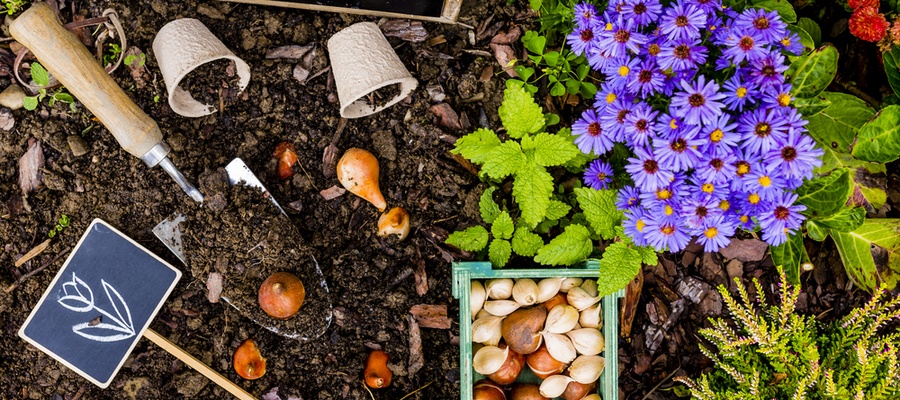It’s a beautiful time of year in the Treasure Valley when the tulips, lilies, and daffodils start popping up in your garden and yard. You’ve probably been getting outside more already with your pets to enjoy the warming weather and do a little digging in the garden—or maybe your dog has done most of the digging so far. But did you know that two of your favorite things—bulb plants and your dog—don’t mix?
Protect Your Dog From Poisonous Bulbs
A curious dog loves to dig up anything they can find in a garden or yard, but some plants can be catastrophic instead of harmless fun. Springs flowers that grow from bulbs can be fatal to dogs if ingested. It’s imperative to keep your dog safe by taking precautions to make sure they don’t dig up and eat any of your springtime bulbs.
Dangerous bulbs include:
- Tulips
- Daffodils
- Narcissus
- Hyacinths
If you have any of these or other bulbs in your lawn, you should be extra vigilant to ensure your dogs aren’t digging them up and eating them. The skin at the bottom of the bulb is especially poisonous.
Ingesting large amounts of these flowers and their bulbs can cause a severe reaction in your dog, including vomiting, nausea, and diarrhea. The severest symptoms include increased respiratory and heart rate and even cardiac arrhythmias.
Preventing Bulb Ingestion
Of course, the best way to prevent your dog from eating anything that could harm them is to keep a close eye on them and make sure they’re never left unsupervised to dig in your yard. However, there are other precautions you can take you may not be aware of. For instance, it’s best to avoid organic fertilizers. Although they may be great for your garden, organic fertilizers can prove too tempting to your dog since they’re often made of feather, bone, or blood meal, making them smell like a tempting treat to your dog. Organic fertilizers may encourage your dog to dig and nibble in your garden, putting them more at risk to eat bulbs and other plants.
If you suspect that your dog has swallowed a bulb or part of one, call your veterinarian immediately. You may need immediate veterinary care, including stomach pumping, fluids, and observation. Protect your pet with fast action if they start exhibiting any of the symptoms of bulb ingestion or if you know they have swallowed a bulb.

